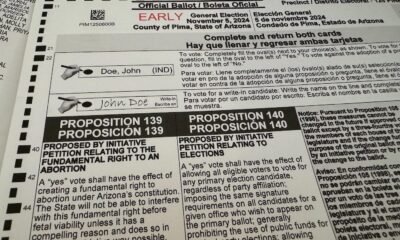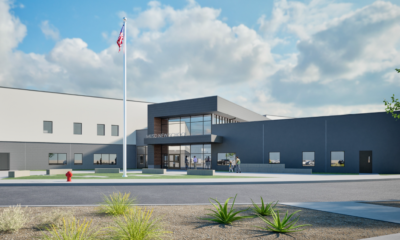budget
Federal Civil Legal Aid Funding at Risk: States Urged to Find Solutions

The future of civil legal aid funding is in jeopardy as a new federal budget proposal looms. Legal practitioners in Arizona, alongside lawmakers, are advocating for state funding to support organizations that provide free legal services to low-income residents.
Arizona has historically not contributed financial resources for civil legal services. Three local legal aid organizations depend heavily on the Legal Services Corporation (LSC), a federal nonprofit, for 53% to 80% of their operational budgets.
The threat of federal funding cuts has emerged before, but the current proposal suggests eliminating LSC entirely, prompting alarm from civil legal aid organizations, the State Bar Foundation, and the Arizona Supreme Court.
“Investing in civil legal aid is a commitment to ensuring that the law protects everyone,” stated Chris Groninger, chief strategy officer for the Arizona Bar Foundation.
Last year alone, LSC provided $11.2 million to serve the general population in Arizona, with significant funds also allocated for Native Americans and agricultural workers.
The three civil legal aid organizations—Community Legal Services, Southern Arizona Legal Aid, and DNA People’s Legal Services—helped over 24,000 individuals, primarily addressing family and housing issues.
Sharon Sergent, executive director of Community Legal Services, emphasized the critical role of legal aid in facilitating access to justice. “We’re last resort for many and still far from closing the access gap,” she remarked.
On May 30, the budget proposal introduced by President Trump aimed to slash LSC funding from $560 million to $21 million, raising concerns among stakeholders.
Arizona’s legal service providers, along with the State Bar Foundation and the Arizona Supreme Court, have consistently monitored the risk of funding decreases, particularly after previous unsuccessful attempts to cut LSC funding.
In response to the pressing issue, Chief Justice Ann Timmer convened a meeting with civil legal service providers, lawmakers, and members of the judiciary to discuss actionable steps.
Although the court cannot lobby for funds, Timmer expressed concerns regarding potential access to justice impacts if federal cuts proceed, facilitating an urgent gathering of interested parties.
“The Legislature may not realize the ramifications of these cuts since legal aid is often an overlooked topic,” Timmer noted, calling for increased advocacy to bring attention to the issue.
The meeting included members from the Senate and House Judiciary committees, helping to rally more legislative support for civil legal aid funding.
Sen. Annalise Ortiz, D-Phoenix, remains focused on civil legal aid, proposing budget amendments for $10 million. “We’re currently in crisis mode,” Ortiz said, acknowledging the financial challenges ahead.
Meanwhile, Sen. Shawnna Bolick, R-Phoenix, advocates for the cause as well, emphasizing the need for continued education among lawmakers about the importance of legal services.
“Investing in legal aid now can help prevent higher costs in social support programs later,” Bolick stated, showcasing bipartisan support for the initiative.
As budget discussions progress, some lawmakers are urging the Governor’s Office to prioritize legal aid funding to prevent its disappearance.
According to the Governor’s Office, civil legal services are currently under consideration. A previous initiative aimed to direct $5 million in American Rescue Plan Act funds towards legal aid to combat eviction issues.
Christian Slater, spokesperson for Governor Katie Hobbs, affirmed her commitment to civil legal aid, highlighting the detrimental impacts of proposed federal cuts on vulnerable populations.


















